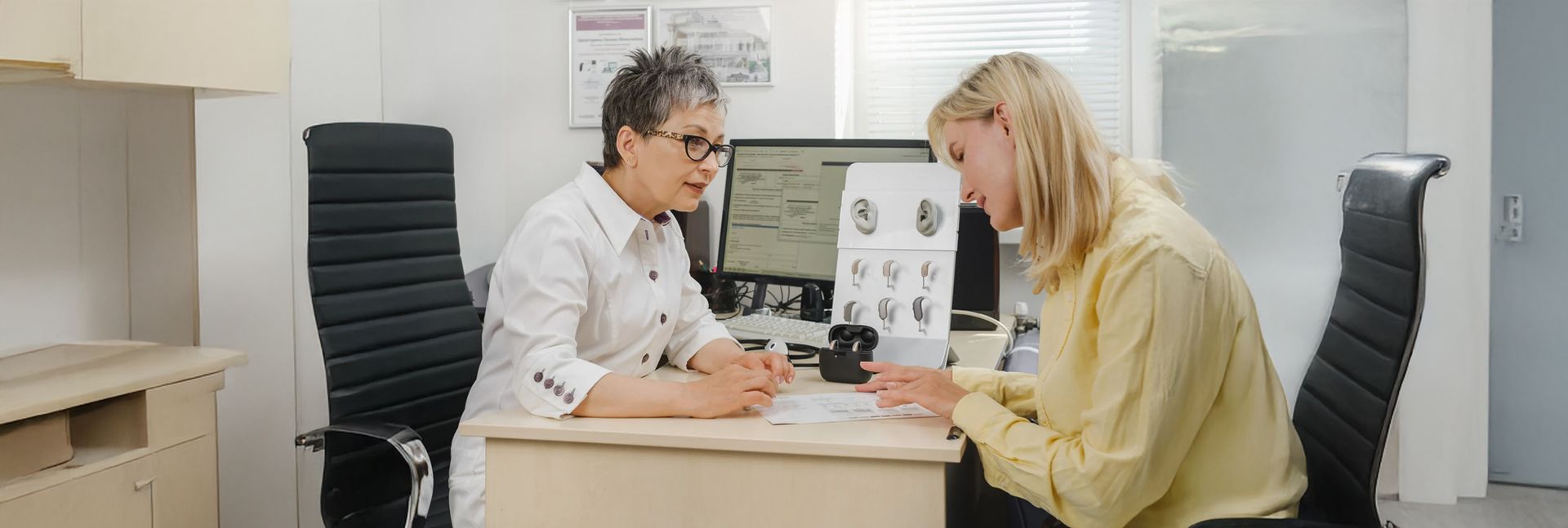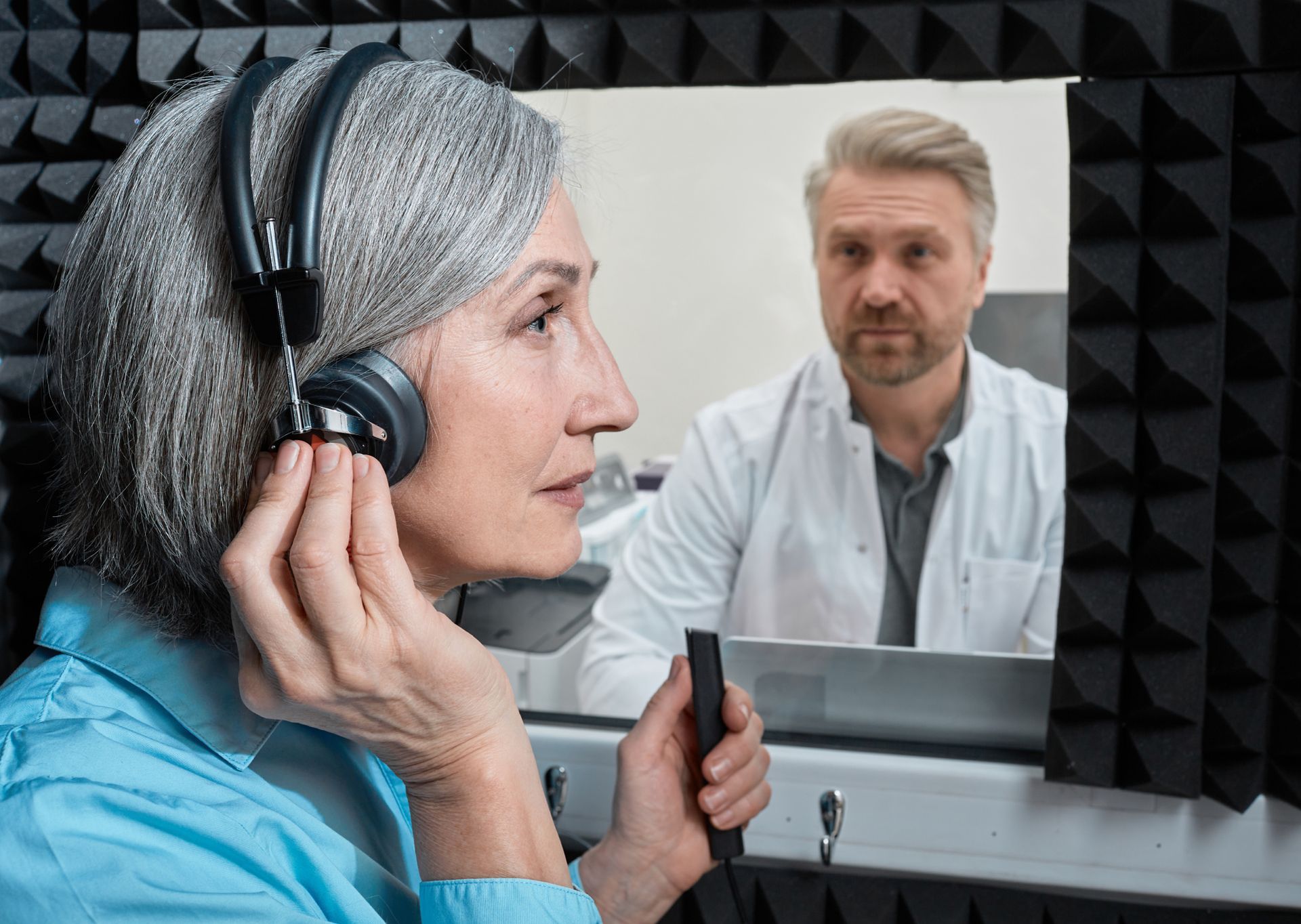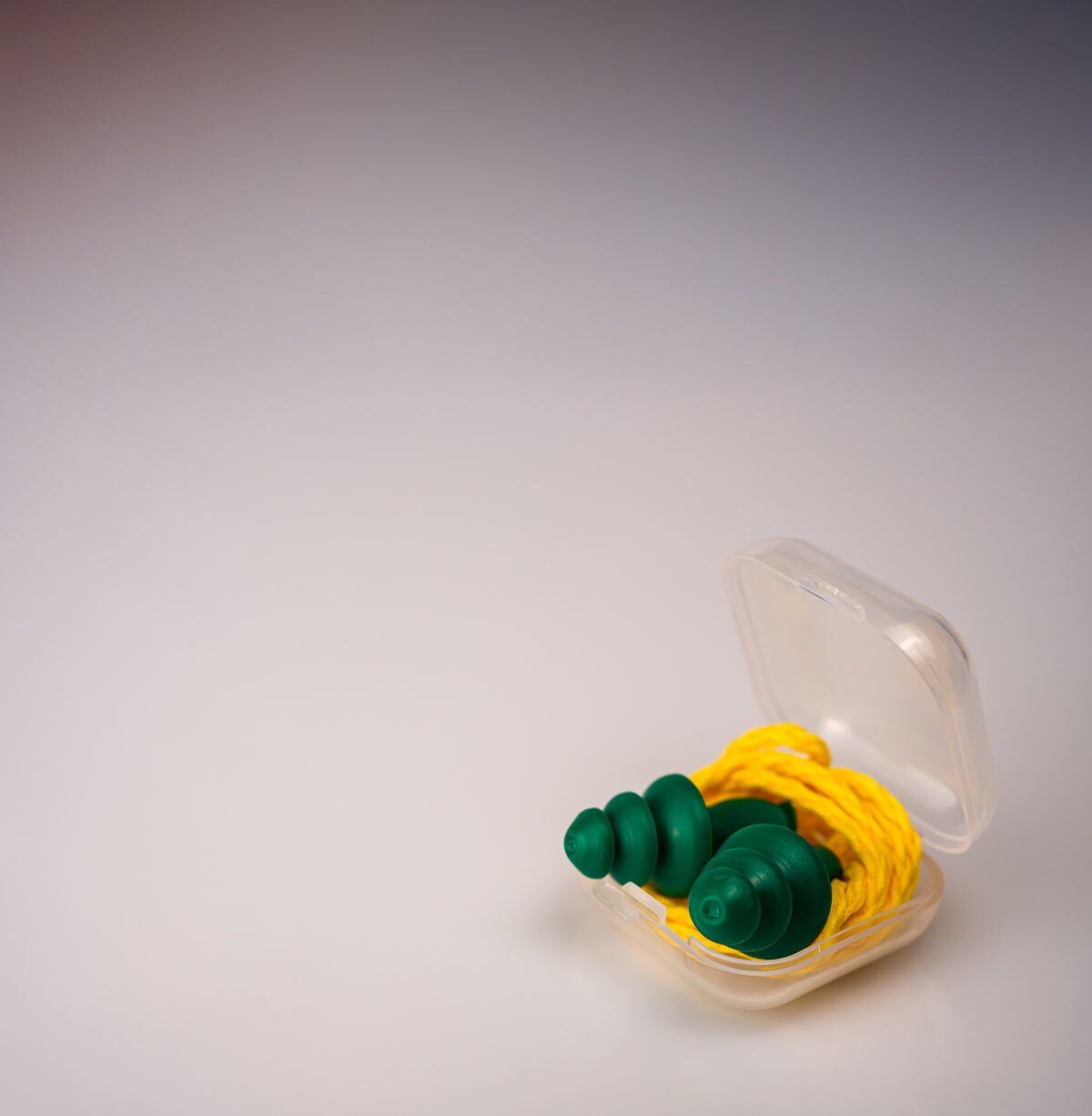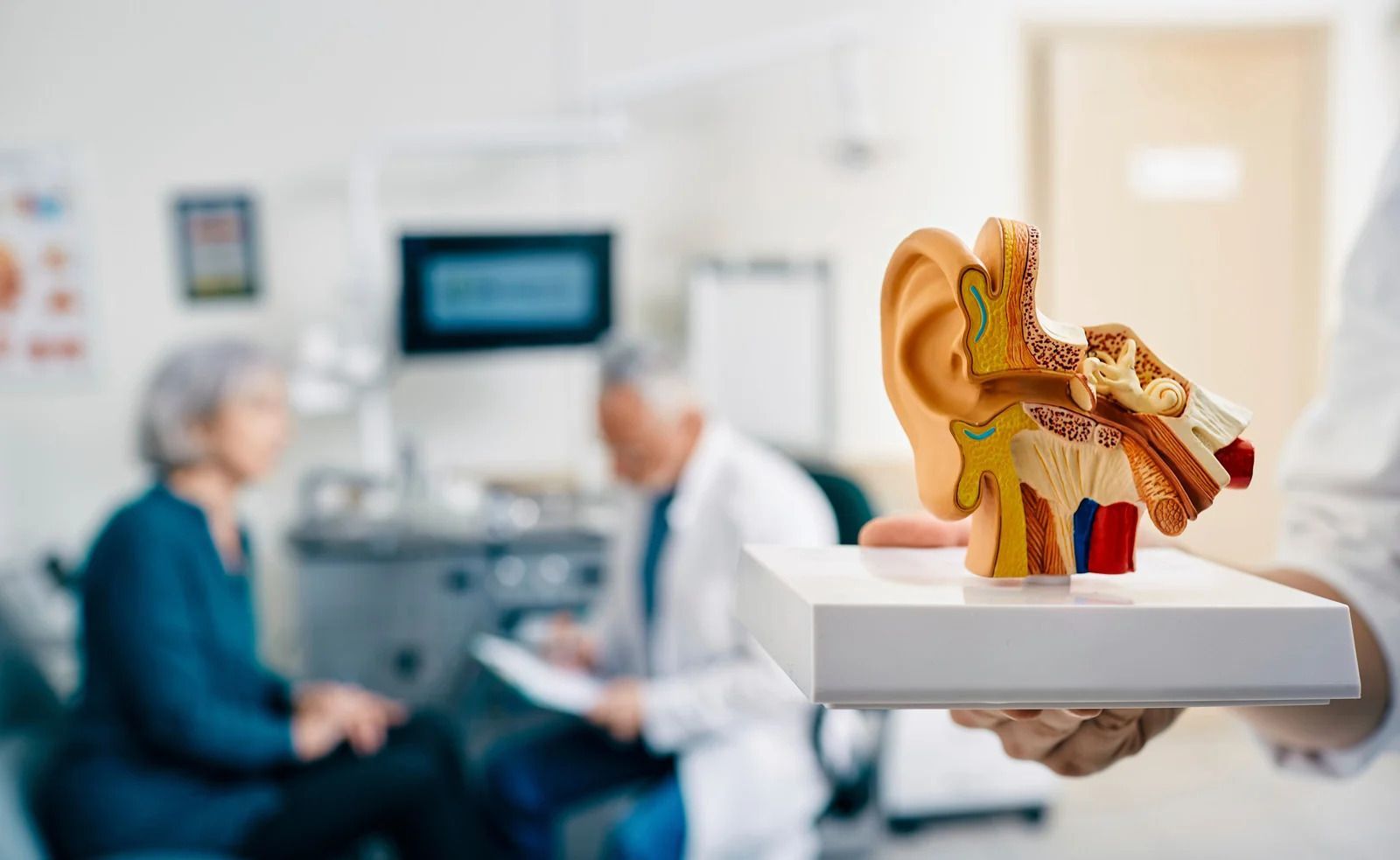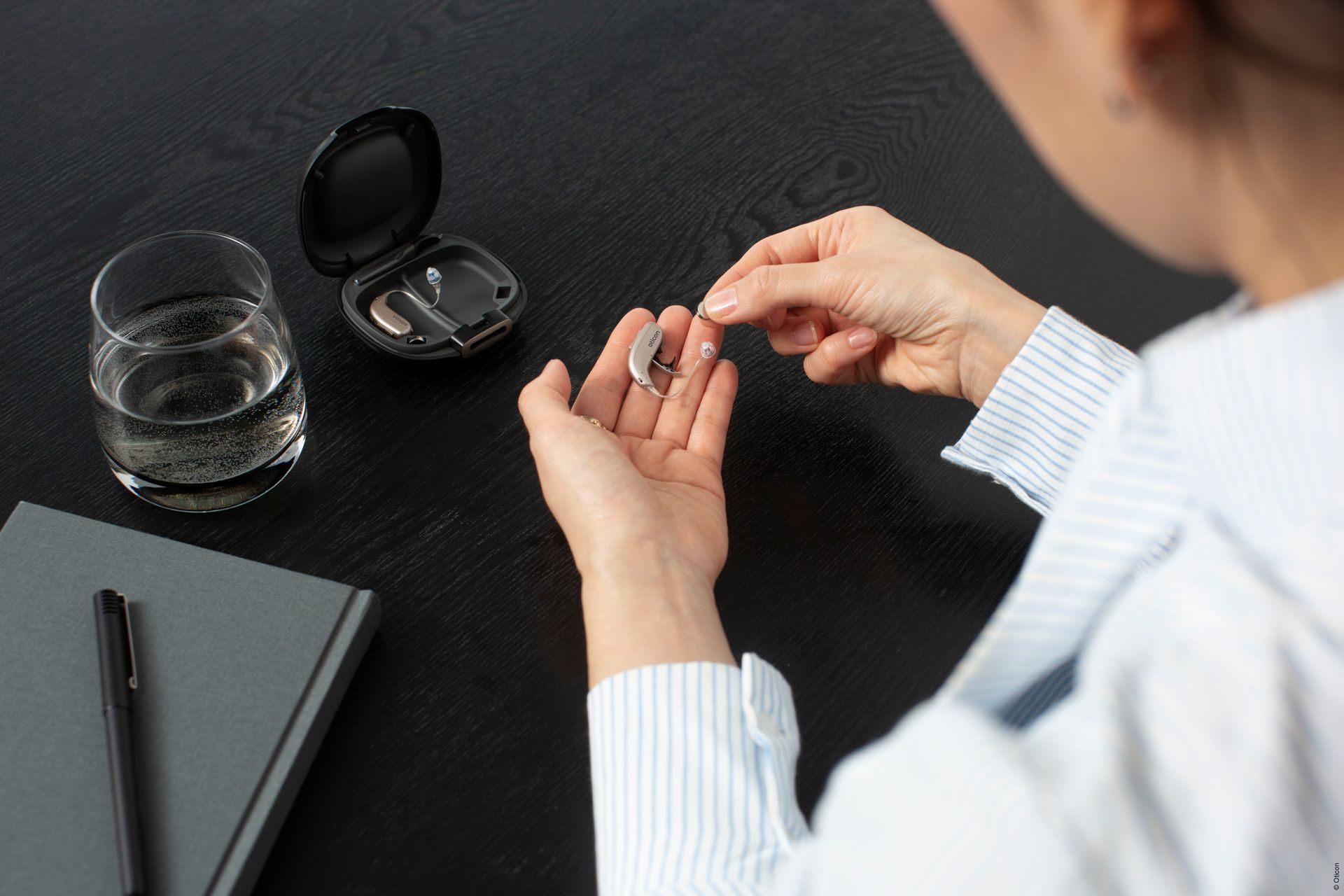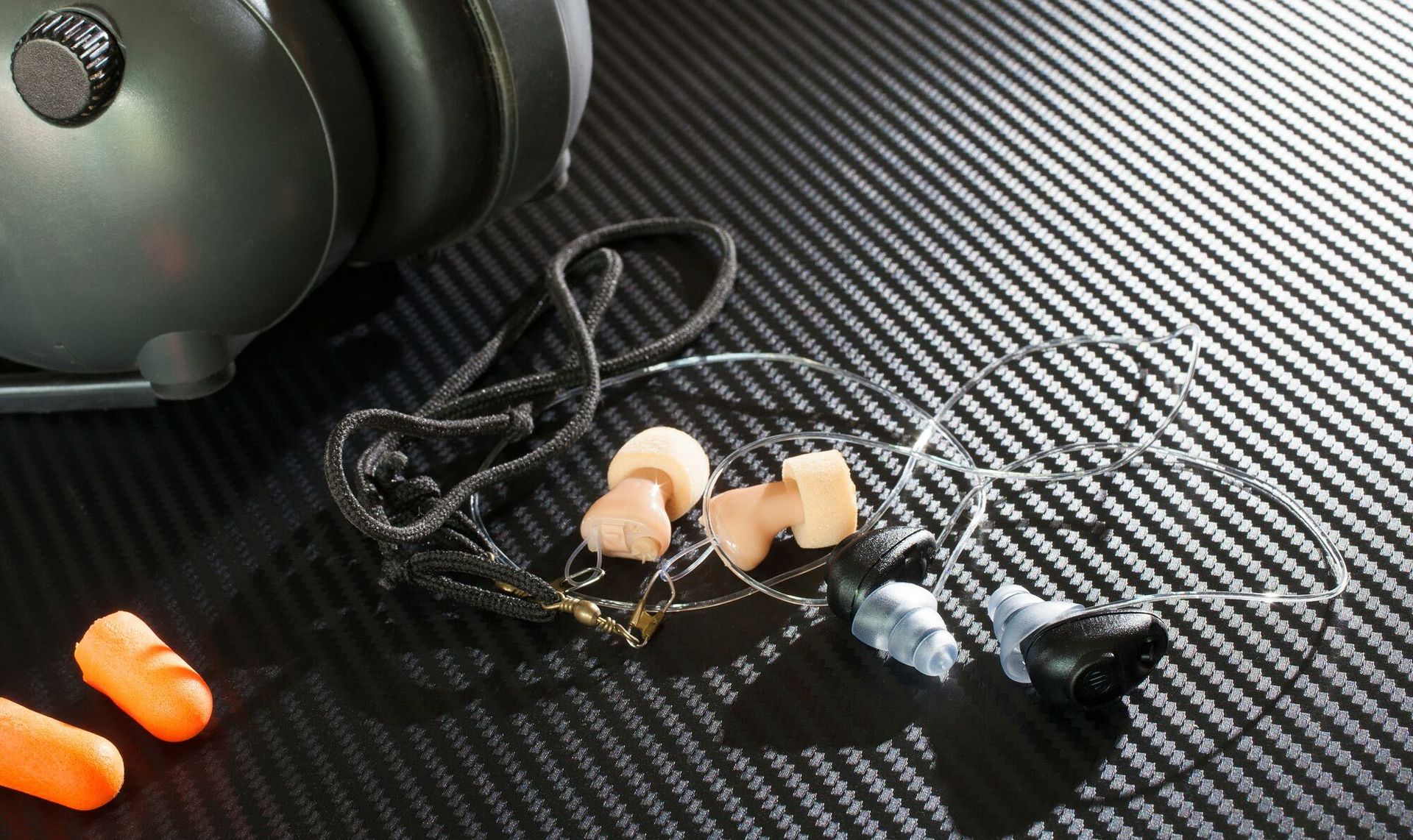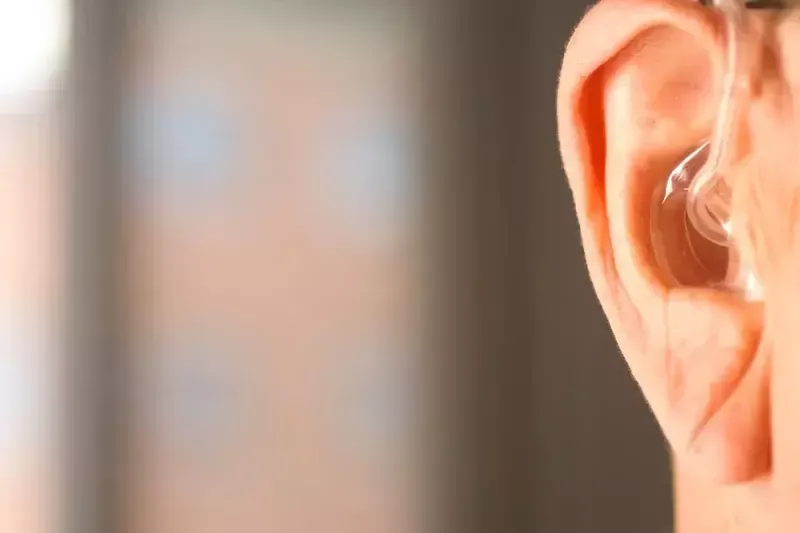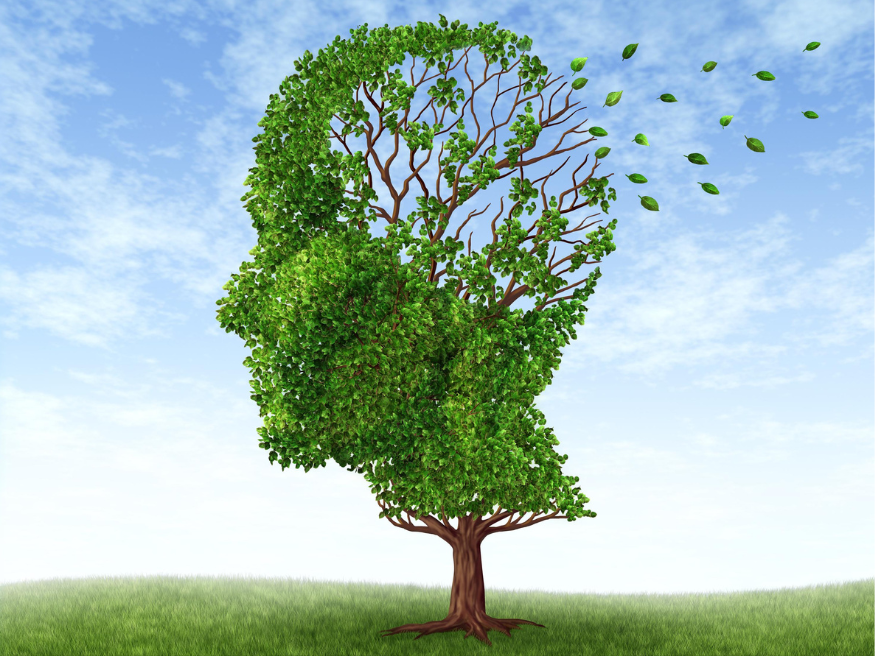Moisture in Hearing Aids
What Do I Do If My Hearing Aid Gets Wet?
Don’t Panic!
While water damage used to be a huge problem for hearing aids, most modern hearing aids sold by Audiology First have some degree of moisture protection. For example, the new Opn series from Oticon have the highest protection status available; the IP68 classification. This means that the hearing aids are completely protected from long term water immersion up to a specified pressure (they are tested for 30 minutes at a depth of 1.5 meters). That means that hearing aids are usually able to fully recover if they end up getting drenched in a rain shower, splashed with water or accidentally worn swimming!
If your hearing aids get wet, remove the battery and leave the battery drawer wide open. Place the hearing aids on a paper towel or other absorbent material in a dry, warm location. Within about 30 minutes the hearing aid will be dry enough to put a new battery in and should operate normally.
Making the Hearing Aids Last
Not all hearing aids have as high a protection classification against moisture. For some older hearing aids, it is important to remove excess daily moisture buildup to keep the components, sound quality and overall functioning of the device at top condition. Everyday moisture buildup can be caused by sweat, or water condensation due to hot or cold temperatures. If you do not remove the moisture from some hearing aids, this can eventually lead to corrosion and malfunction. For best results, it is recommended you dry your hearing aid nightly. For some, this is just as simple as leaving the battery drawer open each night and letting the air circulate through the hearing aid system. However, it can be good practice to use a dedicated drying system with your hearing aids in order to maintain them for longer, regardless of IP rating.
There are several viable options you may use to remove the moisture, and some of these also include a sanitizing function that will eliminate bacteria and keep your hearing aid hygienic and clean. Audiology First, your hearing aids clinic in Lethbridge, offers a few different options for your drying and/or sanitizing needs.
PerfectDry Lux Universal Sanitizer Dryer
This hearing aid dryer is perfect for any hearing aid, including all plastics and ear molds, and contains a UV light that has the approximate lifespan of 10,000 hours (estimated to be over a year and a half with daily use) before you need to change the bulb.
The UV light removes microorganisms such as viruses, bacteria, yeasts, fungi and mildew. The lamp is a short wave, low pressure mercury vapour tube that produces Ultra Violet wavelengths that are lethal to bacteria. The light runs for 8 minutes and shuts off automatically when finished.
Hal-Hen Super Dri-Aid
The Hal-Hen Dri-Aid is a jar of absorbent white and blue beads. The beads are used to pull moisture out of your hearing aid. You simply place the hearing aid into the jar every night and tightly close the lid. Eventually, over a long period of use, the blue beads turn white, indicating that the jar cannot absorb any more moisture. Once they have changed colour, simply follow the instructions on the package to recharge the drying kit (the jar is placed in the oven to dry the beads out again). While this is a much cheaper option than the PerfectDry Lux, it simply removes moisture without sanitizing the hearing aid.
Options
The PerfectDry Lux Universal Sanitizer and Dryer and the Hal-Hen Super Dri-Aid are two options for removing moisture from your hearing aid, which should be done regularly. Visit Audiology First in Lethbridge and find out what option best suits your needs. It is so important to take care of your hearing aid to ensure you get the best use out of it!
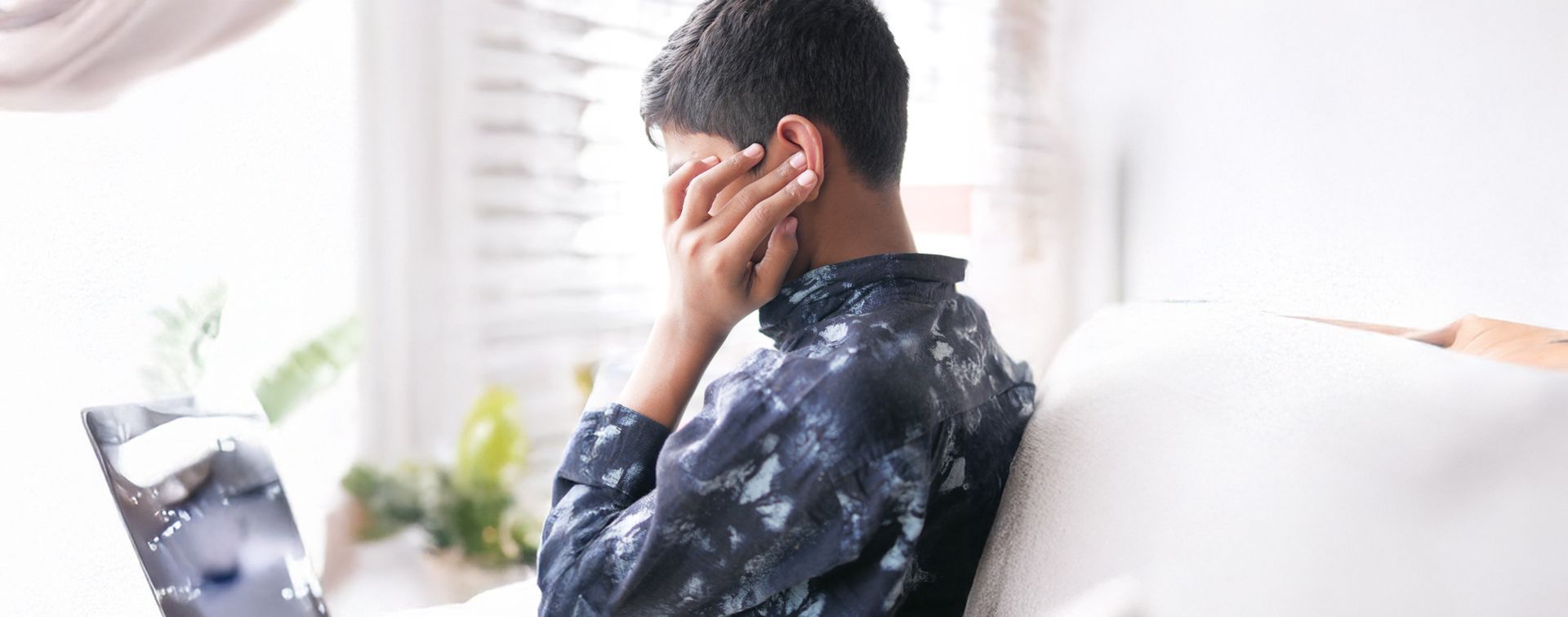
When it comes to audiology, there’s only one true emergency: sudden sensorineural hearing loss (SSNHL) . Unlike gradual hearing loss that develops over years, SSNHL appears abruptly and requires immediate medical attention. Audiology First specializes in rapid emergency hearing care, with diagnostic protocols and treatment pathways designed to act fast when every hour matters. Quick intervention can mean the difference between full recovery and permanent hearing damage. Let’s learn how to recognize warning signs and understand what a treatment plan would look like. Understanding Sudden Sensorineural Hearing Loss Definition and Criteria To an Audiologist, sudden sensorineural hearing loss is defined as a 30+ dB hearing loss (which in layman's terms would be a very noticeable change) across three different pitches of hearing within 72 hours. For it to be a true sudden sensorineural loss, it cannot be related to anything else, like wax blockage, fluid buildup or a blockage. It happens without warning and is often mistaken for a minor issue like earwax buildup or fluid in the ear, but the stakes are often much higher. Prevalence and Demographics SSNHL affects about 5 to 20 per 100,000 people annually , with thousands of cases reported across Canada. While it can strike at any age, adults in their 40s and 50s are more commonly affected. Unilateral vs. Bilateral Most cases are unilateral (one ear), but in rare circumstances, hearing loss can affect both ears. Bilateral cases are especially urgent and may point to underlying systemic or autoimmune conditions. Associated Symptoms Patients often experience additional warning signs such as tinnitus (ringing in the ears), dizziness, or a sensation of fullness in the affected ear. Audiology First’s Emergency Assessment Our clinic prioritizes same-day evaluations , including audiometric testing and immediate physician referral when needed. By identifying SSNHL quickly, we aim to maximize the window for effective treatment and recovery. Remember that hearing care centers like Audiology First cannot treat sudden loss, but play a role in identifying it. If you cannot see an audiologist or another trained hearing care professional right away, you should not delay seeking medical help from a physician. If same day testing is not available, you should continue to seek help as a matter of urgency. We recommend using one or more of the following resources: Call Alberta Healthlink on 311 Visit an Urgent Care center Visit your local Emergency Room or Call a local Ear Nose and Throat specialist’s office Recognizing the Warning Signs Immediate Symptoms The hallmark sign is sudden hearing loss in one ear , which may feel like muffled sounds or difficulty understanding speech. Secondary Indicators Other red flags include persistent tinnitus, balance issues, and ear pressure that can accompany the hearing loss. When to Seek Emergency Care Time is of the essence. Some research shows that treatment is most effective when started within the first 72 hours . While some people’s hearing may recover spontaneously with or without treatment, delaying medical attention can lead to permanent hearing impairment . In some cases, hearing does not recover, even with prompt treatment. If you are experiencing dizziness at the same time as a hearing loss, do not drive yourself to seek help, but consider getting someone to drive you to any immediate appointments. Self-Assessment Techniques At home, a simple test is to cover one ear at a time when listening to a familiar sound (such as your phone or TV). If one side sounds significantly quieter or distorted, it’s an urgent signal to seek help. If you are a hearing aid user, it is important to check that your hearing aid is not blocked or malfunctioning in some way, giving the appearance of a sudden change in hearing. Treatment Options and Protocols Audiologists and Hearing Care Professionals cannot prescribe medications, but these are some of the options offered to people with sudden loss when they visit a medical professional. Corticosteroid Therapy The primary treatment for SSNHL is corticosteroids, delivered either orally or through intratympanic injections. These reduce inflammation and improve the likelihood of hearing recovery. Prednisone is often prescribed. Treatment Timing Prompt treatment is crucial. Patients who start therapy within 14 days of onset have significantly better outcomes. Hyperbaric Oxygen Therapy For patients who don’t respond to steroids, hyperbaric oxygen therapy can serve as a salvage treatment, improving oxygen delivery to the inner ear. Supportive Care Managing related issues like tinnitus or dizziness may require additional therapies, including hearing aids or vestibular rehabilitation. Audiology First’s Treatment Approach We have a great relationship with the local ENT specialists, and coordinate all aspects of care with them to ensure each patient has access to the best possible recovery options. Recovery and Rehabilitation Recovery Timelines: Recovery can range from a few days to several months, depending on the severity and speed of treatment. Some patients regain full hearing, while others experience only partial improvement. Hearing Aid Considerations: For those with lasting deficits, modern hearing aids can provide amplification and restore communication confidence. Tinnitus Management: Persistent ringing in the ears is often a consequence of hearing loss that can be managed through sound therapy, well fitted hearing aids, counseling, and tinnitus retraining techniques. Follow-up Care: You should return to the clinic for a series of routine follow up tests over the weeks and months following a sudden hearing loss. This allows us to measure whether treatments have been successful, and to treat any residual hearing loss. Audiology First’s Rehabilitation Services For those who need it, Our team provides comprehensive recovery support, including custom hearing aid fittings, counseling, and personalized rehabilitation plans. Prevention and Risk Factors Known Risk Factors Sudden Sensorineural Hearing Loss has been linked to the following: Viral infections Autoimmune disorders Circulatory problems Certain medications Age-related vulnerabilities Protective Measures Protecting your hearing from loud noise, avoiding ototoxic medications when possible, and treating systemic health issues can lower risk. Early Detection Baseline hearing tests and regular audiology check-ups can help detect changes early and establish a benchmark for comparison. Lifestyle Factors It is difficult to note which factors may reduce the risk of sudden sensorineural hearing loss, but a healthy lifestyle—including balanced nutrition, exercise, and cardiovascular health—supports long-term hearing preservation. Audiology First’s Prevention Programs We provide preventive screenings, personalized risk assessments, and educational resources so patients can take proactive steps toward protecting their hearing health. Sudden Sensorineural Hearing Loss is not a typical hearing problem…it’s a medical emergency. If you or someone you know experiences sudden hearing loss, don’t wait, contact Audiology First immediately during business hours, or contact any other trusted hearing care clinic. If you cannot reach us, please seek immediate medical attention. Book your hearing evaluation today and take the first proactive step in protecting your long-term hearing health.

